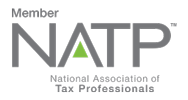The IRS has created the People First Initiative to provide immediate
relief to help people facing uncertainty over taxes. In addition to
extending tax deadlines the IRS is temporarily modifying the collections
and limiting certain enforcement actions. The IRS will continue to take
steps where necessary to protect their employees, tax payers, and being
a key part of the outgoing response to the coronavirus effort.
For taxpayers with existing installment agreements, payments due between
April 1 and July 15, 2020 are suspended. Direct Deposit installment
agreements may be suspended if preferred. The IRS will not default any
Installment Agreements during this period, but by law interest will
continue to accrue on any unpaid balances. Any new installment
agreements will not be assessed until July 15, 2020.
The IRS is taking steps to assist taxpayers in various stages of Offers
in Compromise (OIC). The IRS will not allow taxpayers to request
additional information to support a pending OIC until July 15, 2020.
They will not close any pending OIC requests before July 15, 2020,
without taxpayer consent. Any ongoing OIC payments have the option for
suspend payments until July 15, 2020, although interest will accrue on
any unpaid balances. The IRS would like to remind taxpayers facing a
liability exceeding their net worth that the OIC process is designed to
resolve outstanding tax liabilities.
People who have not filed their return for tax years before 2019 should
do so. More than 1 million households that haven’t filed their tax
returns for the last three years are actually owed refunds, and still
have time to claim these refunds. Once delinquent returns have been
filed, taxpayers with a liability should consider an OIC.
Liens and levies initiated by field revenue officers will be suspended
during this period. However, field revenue officers will continue to
pursue high-income non filers and perform other similar activities where
warranted. New Automated liens and levies will be suspended during this
period.
Passport Certifications to the State Department, private debt
collections, field, office and correspondence audits will be suspended
during this period unless under unique circumstances. Unique
circumstances are particularly for some corporate and business
taxpayers. In instances when it’s the best interest for both parties and
appropriate personnel are available, the IRS may initiate activities to
move forward with examinations.
Taxpayers with Earned Income Tax Credit and Wage Verification Reviews
have until July 15, 2020 to respond to the IRS to verify that they
qualify. They are encouraged to exercise their best efforts to obtain
and submit all requested information, and if unable to do so to reach
out to the IRS indicating the reason information is not available. Until
July 15, 2020 the IRS will not deny these credits for failure to provide
requested information. Appeals employees will continue to work their
cases without holding in-person conferences. Tax payers are encouraged
to respond promptly to any outstanding requests.
The IRS will continue to take steps where necessary to protect all
applicable statutes of limitations. In instances where statute
expiration might be jeopardized during this period, taxpayers are
encouraged to cooperate in extending such statutes. Otherwise, the IRS
will issue Notices of Deficiency and pursue other similar actions to
protect the interests of the government in preserving such statutes.
Where a statutory period is not set to expire during 2020, the IRS is
unlikely to pursue the foregoing actions until at least July 15, 2020.
Practitioners are reminded that, depending on staffing levels and
allocations going forward, there may be more significant wait times for
the PPS. The IRS will continue to monitor this as situations develop.



